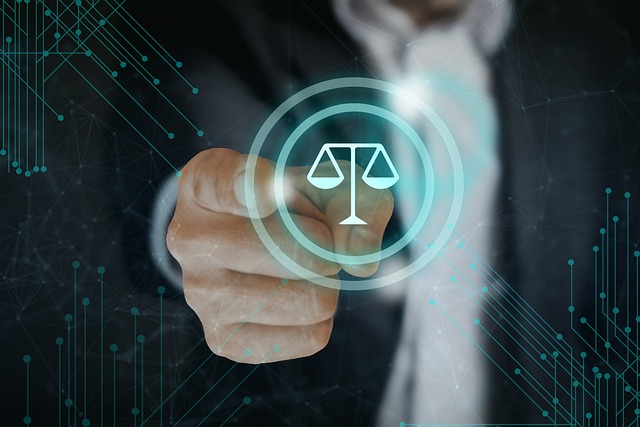The healthcare industry faces unique challenges with compliance due to handling sensitive patient data and stringent regulations like HIPAA. Effective dispute resolution requires understanding these regulations, implementing robust policies, and prioritizing ethical practices to prevent white-collar offenses. Alternative dispute resolution methods like mediation and arbitration offer benefits such as reduced costs, faster timelines, and greater confidentiality. Expert testimony and strategic evidence collection are crucial in criminal law cases involving healthcare compliance disputes, facilitating favorable outcomes like complete charge dismissal.
In the intricate world of criminal law, cases involving medical disputes present unique challenges. This article explores key aspects that shape these complex scenarios. From navigating healthcare industry compliance to implementing effective dispute resolution strategies, we delve into the intricacies. Understanding the role of evidence and expert testimony is pivotal for reaching just outcomes. By examining these elements, legal professionals can ensure fair processes, especially in cases where medical knowledge is paramount.
- Navigating Healthcare Compliance in Criminal Law
- Strategies for Dispute Resolution in Medical Cases
- The Role of Evidence and Expert Testimony
Navigating Healthcare Compliance in Criminal Law

In the complex landscape of criminal law, the healthcare industry faces unique challenges when it comes to compliance. As a vital sector, healthcare organizations handle sensitive patient data and are subject to stringent regulations, such as HIPAA in the US. Navigating these rules is crucial to avoid legal pitfalls, particularly in cases involving white-collar and economic crimes. Failure to maintain proper records or safeguard patient information can lead to costly disputes and even criminal prosecution. Therefore, proactive measures and robust internal controls are essential to ensuring healthcare industry compliance.
Effective dispute resolution strategies often begin with a thorough understanding of the regulatory environment. Healthcare providers must implement robust policies and procedures that align with legal requirements. By doing so, they can mitigate risks and demonstrate their commitment to ethical practices, which is critical in preventing indictments for white-collar offenses. This proactive approach not only safeguards against legal repercussions but also fosters trust among patients and regulatory bodies, ensuring the organization’s long-term sustainability.
Strategies for Dispute Resolution in Medical Cases

In the dynamic landscape of the healthcare industry, efficient dispute resolution is paramount to maintaining compliance with regulations and fostering trust among patients and providers. Medical disputes can arise from various sources, including misdiagnoses, medical malpractice, billing issues, and patient safety concerns. To navigate these complex matters effectively, legal professionals and practitioners must employ strategic approaches tailored to the unique characteristics of healthcare litigation. One notable trend in dispute resolution is the increasing preference for alternative methods over traditional courtroom battles.
Mediation and arbitration stand out as popular alternatives, offering advantages such as reduced costs, faster timelines, and greater confidentiality. These mechanisms allow parties to negotiate solutions that meet their respective business needs while adhering to legal frameworks. Moreover, with healthcare regulations like HIPAA adding layers of complexity, efficient dispute resolution strategies are essential to ensure compliance across the country. Effective case management, coupled with a deep understanding of medical ethics and industry standards, enables stakeholders to resolve conflicts amicably, thereby preserving relationships and promoting patient care as the paramount concern.
The Role of Evidence and Expert Testimony

In Criminal Law Cases, especially those involving complex issues like white collar and economic crimes, the role of evidence and expert testimony cannot be overstated. This becomes even more critical in the context of the healthcare industry, where compliance disputes can arise from various regulatory non-compliance issues. Effective dispute resolution often hinges on robust evidence collection and the strategic use of expert witnesses. These experts can provide insights into intricate legal matters, helping judges and juries understand complex financial transactions or interpret technical regulations that may have been violated.
For instance, in cases where a healthcare organization faces charges related to fraudulent billing practices, detailed financial records and forensic accounting reports are invaluable pieces of evidence. Similarly, expert testimony from former industry regulators can offer valuable context about compliance standards across the country. This not only aids in navigating the legal complexities but also facilitates achieving desirable outcomes, such as a complete dismissal of all charges if the defense presents compelling evidence and arguments.
In conclusion, understanding the intricate relationship between criminal law and healthcare is paramount. By effectively navigating Healthcare Industry Compliance, utilizing innovative Dispute Resolution strategies, and leveraging powerful evidence and expert testimony, legal professionals can ensure justice is served in medical cases. These key aspects play a pivotal role in safeguarding patient rights and upholding the integrity of the healthcare industry.






